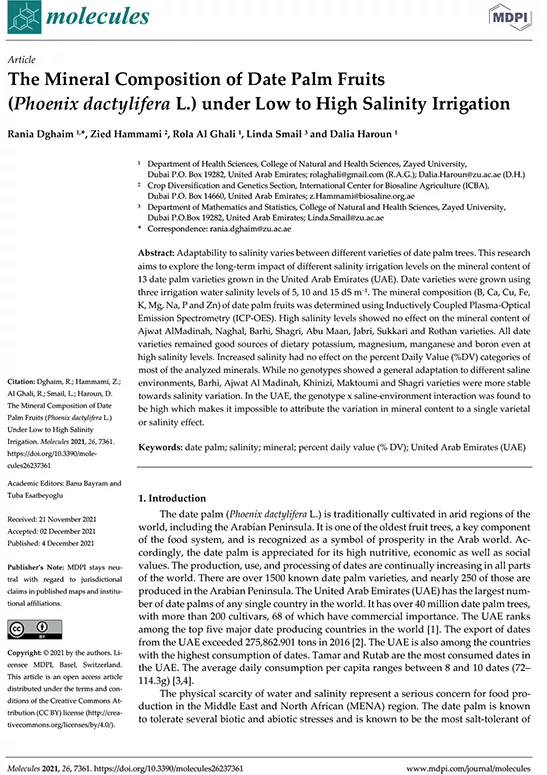The Mineral Composition of Date Palm Fruits (Phoenix dactylifera L.) under Low to High Salinity Irrigation
Adaptability to salinity varies between different varieties of date palm trees. This research aims to explore the long-term impact of different salinity irrigation levels on the mineral content of 13 date palm varieties grown in the United Arab Emirates (UAE). Date varieties were grown using three irrigation water salinity levels of 5, 10 and 15 dS m−1. The mineral composition (B, Ca, Cu, Fe, K, Mg, Na, P and Zn) of date palm fruits was determined using Inductively Coupled Plasma-Optical Emission Spectrometry (ICP-OES). High salinity levels showed no effect on the mineral content of Ajwat AlMadinah, Naghal, Barhi, Shagri, Abu Maan, Jabri, Sukkari and Rothan varieties. All date varieties remained good sources of dietary potassium, magnesium, manganese and boron even at high salinity levels. Increased salinity had no effect on the percent Daily Value (%DV) categories of most of the analyzed minerals. While no genotypes showed a general adaptation to different saline environments, Barhi, Ajwat Al Madinah, Khinizi, Maktoumi and Shagri varieties were more stable towards salinity variation. In the UAE, the genotype x saline-environment interaction was found to be high which makes it impossible to attribute the variation in mineral content to a single varietal or salinity effect.
Year
2021
Publication Source
Molecules
Publication type
Scientific Paper
Volume/Chapter/Issue
26









